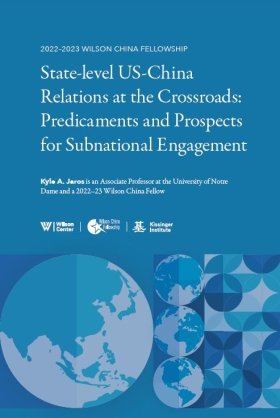State-level US-China Relations at the Crossroads: Predicaments and Prospects for Subnational Engagement


The subnational level of the US-China relationship has become increasingly important but remains poorly understood. Over the past several decades, many US states have engaged extensively with Chinese official counterparts to promote economic development, educational cooperation, and cultural exchange. Once routine, these forms of subnational interaction with China have attracted fresh scrutiny and grown politically fraught amid worsening US-China relations. In this essay, I examine the stakes of state-level engagement with China and the challenges that have arisen as low politics and high politics blur together, considering the dual risks for US states of unbalanced engagement and radical recoil. To better understand how states are navigating a rapidly changing US-China relationship, I carry out a detailed case study of Indiana-China interaction while also exploring broader nationwide trends. Through this analysis, I develop insights into the drivers of both historical moderation and recent volatility in state-level relations with China, and I distill lessons and recommendations for policymakers at both the state and federal level.
Author

Associate Professor of Global Affairs in the Keough School of Global Affairs at the University of Notre Dame

Kissinger Institute on China and the United States
The Kissinger Institute works to ensure that China policy serves American long-term interests and is founded in understanding of historical and cultural factors in bilateral relations and in accurate assessment of the aspirations of China’s government and people. Read more

Explore More
Browse Insights & Analysis
US Inaction Is Ceding the Global Nuclear Market to China and Russia

360° View of How Southeast Asia Can Attract More FDI in Chips and AI

